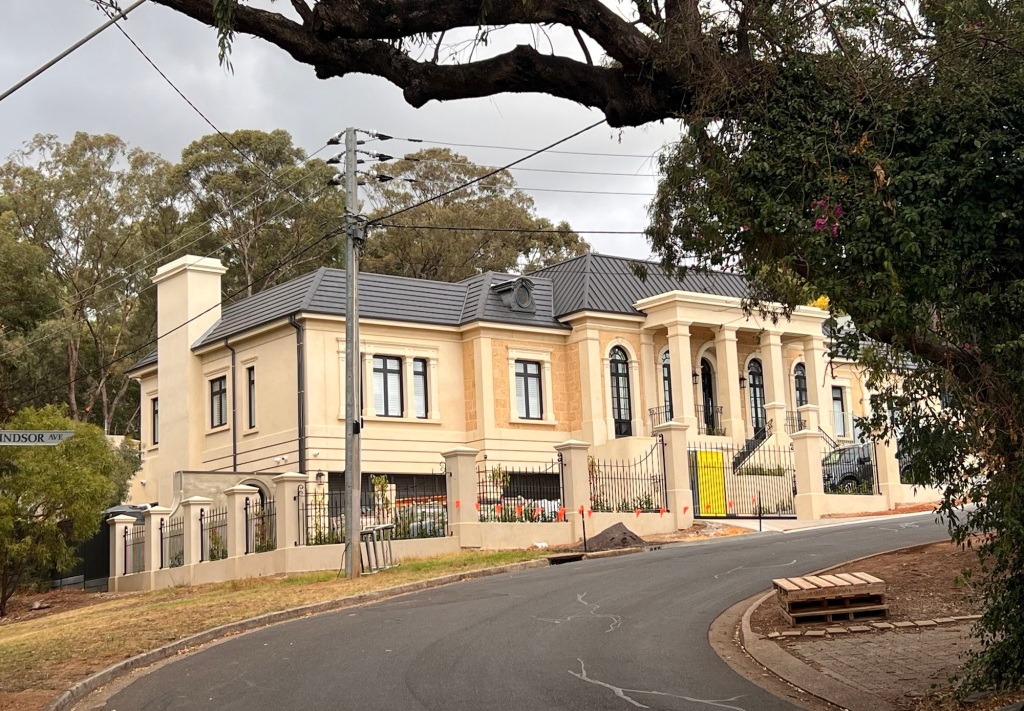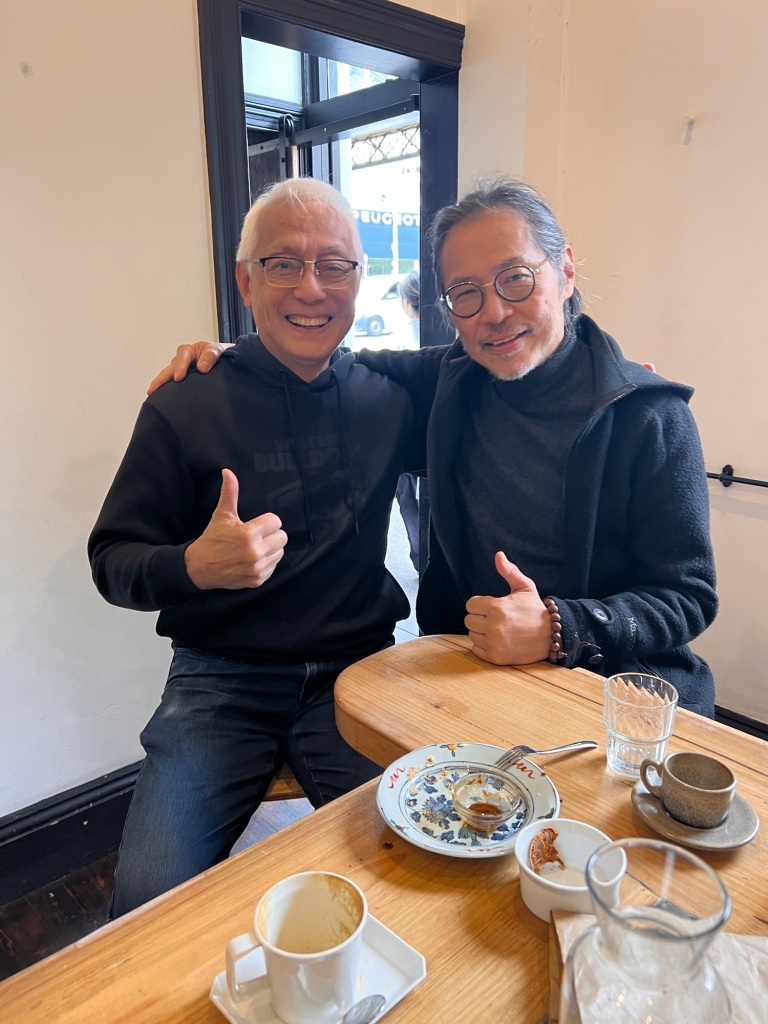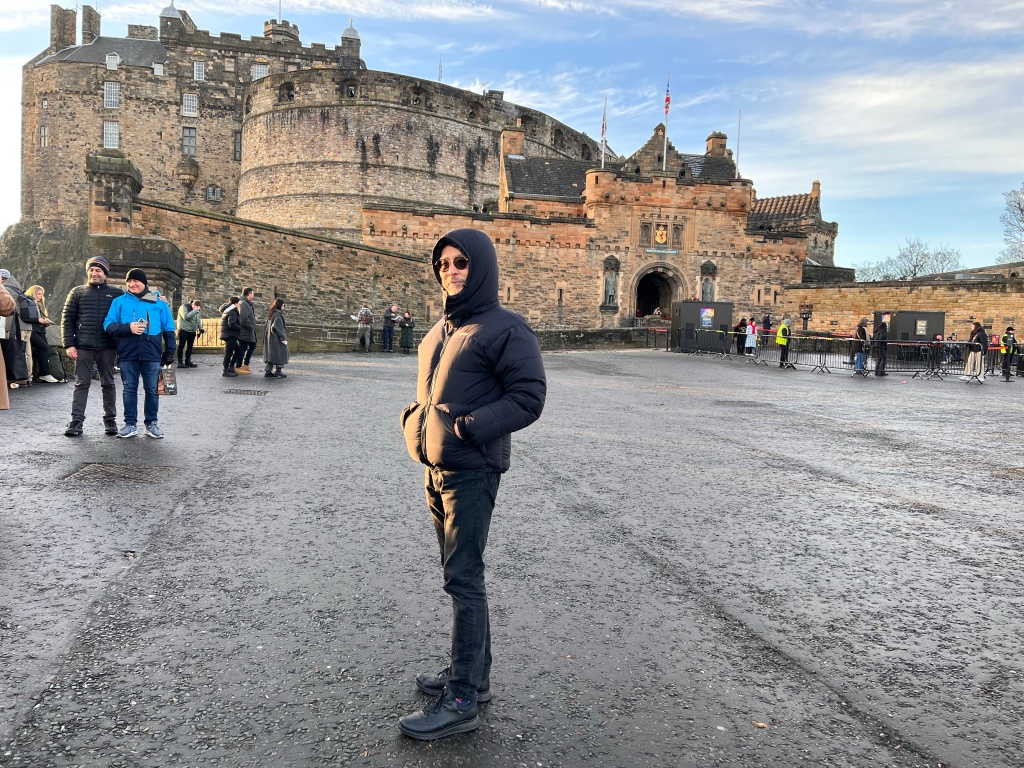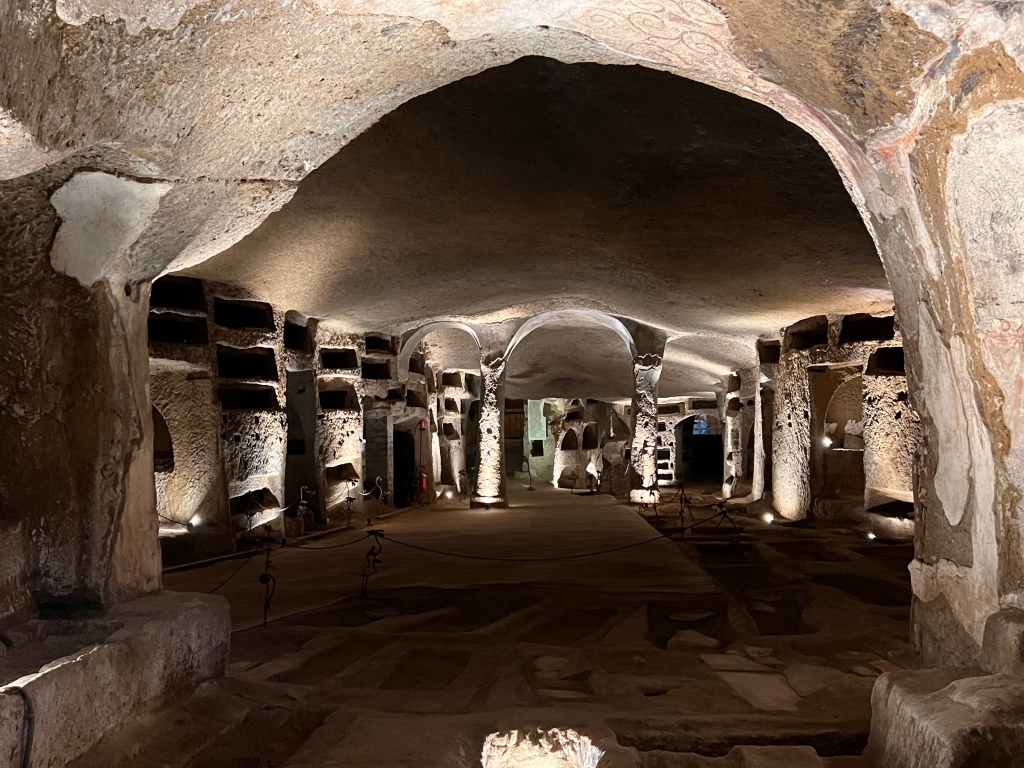The neighbours across the park finally moved in, after three long years of construction noise, dust and loud rock music across the park from tradies’ radios. The old man was thankful all that would be in the past. The early morning disruptions to his sleep would surely end, he thought. He had a mind to complain to the local council about their builder who broke the law by starting the works in the dark and before seven in the morning. One morning, he stormed out of his house and raced across the park to demand they put a stop to the illegal activity. But, the supervisor explained the project was running late and over-budget. He was a burly bloke with short curly hair who used his good looks and good manners to ask the old man for his kind understanding. Reasoning with a reasonable man worked – a delay that morning would have spoiled a few truckloads of cement. Had they started pouring after seven, they would not have finished laying the foundations that day. The old man acquiesced and nodded his head in agreement to let it slide one more time. He tightened the belt of his knee-length dressing gown in a vain attempt to ward off the morning chill. Looking up towards the tops of the gum trees, he cursed the laughing kookaburras he felt were looking down at his sparrow-like legs.
It was a massive stately house. Facing westerly, the windows were protected with white wooden venetian slats. Oversized and therefore overbearing, it was situated in the best corner of the neighbourhood, overlooking a sizable private park. Behind it was a well-lit tennis court and adjacent to that was a rather ugly concrete water slide that led to a gleaming pool quite a few steps below.
The old man was walking his dog at the perimeter of the property when the new neighbour walked out of his black 4WD. All three cars parked on the massive forecourt of the mansion were black. The bullet-proof windows and the many CCTV cameras that scanned the property gave the impression that the people inside prized their security and wellbeing to a degree not befitting the people who lived along the street.

“G’day there, neighbour,” the old man hollered from a few yards outside the driveway.
The neighbour looked at the old man and gave a hint of a smile and nothing else. Not even a nod or wave. Maybe he’s deaf, the old man thought to himself. The old man, led by his dog, walked closer to the tall iron gates. The neighbour gave him a furtive look as his eyes examined the credentials of the old man. Physically, he was judged a poor man in his ragged clothes and well-worn sneakers but he could not decide if the old man was intellectual or moral. So, when in doubt, avoid strangers, the neighbour reminded himself.

The man looked Japanese, perhaps a German hybrid, because of his towering presence and accent. He had long black hair, well-oiled and always tied up in a bun. His movements were quick and decisive, and hinted at having been trained in some martial arts. The number of cars he owned suggested he was a married man with adult children but they remained unseen and unheard. It took many walks with his dog and many distant sightings of the neighbour before they finally struck up a conversation.
“Hi, my name is Nakamoto,” the neighbour introduced himself as he extended his hand to greet the old man.
“Murray, it’s ok, settle down,” the old man replied, and reined back his dog before shaking the neighbour’s hand.
Their handshake was strong and the grip was firm, more so than normal. The old man flexed his biceps so as to show no weakness.
“Nakamoto? don’t tell me your first name is Satoshi?” he asked.
“As a matter of fact, some say that’s my name!” the neighbour said, “or that is who people normally associate me with,” he added, showing for the first time that he was cryptic in everything he said or did.
He didn’t invite the old man to his house but instead, he gestured that they sat on the bench in the middle of the park. There the two men sat, for almost the whole afternoon, and chatted non-stop, oblivious of the orange sun that was descending to the treetops, its orange-reddish rays piercing through the gum leaves to give them warmth and a comfortable hue of light. The two men were also unaware of the advancing grey clouds that eventually won the battle against the sun to rule the sky, so engrossed were they on the topic they were discussing.
“Satoshi Nakamoto,” the old man had repeated.
“Is that your real name?” he asked.
The neighbour did not confirm or deny. He merely asked why.
“Is that not a strange thing to ask?” he posed the question to the old man.
“Well….. Satoshi Nakamoto is famous!” the old man replied.
The old man rattled on profusely. The whole world does not know the true identity of the founder of Bitcoin. In 2009, Satoshi Nakamoto wrote the white paper to explain how Bitcoin works, and after he gave it to the world for free after ensuring it worked, he simply disappeared. To this day, no one knows his identity or gender. Perhaps, it’s a group of people. Perhaps, it is the CIA, some say. All we know is that after the Global Financial Crisis hit, the financial world was in crisis. The fiat monetary system was broken. Money itself was broken. Since then, it has gotten worse, the loose money printing has not only continued but accelerated and money is further debased. Inflation is daylight robbery. This is how governments steal from us, our money is worth a lot less. For decades, I used to think the rising stock market and growth in property prices are indicators of a healthy economy. It used to baffle me why the price earnings ratios of businesses can be in many multiples. It was clear the fundamentals were broken. It did not make sense that a company’s share price could have a PE ratio of 100, as that meant it would take a hundred years to recoup the cost of the share, assuming the same profitability of the business. Bitcoin is the answer to our problems for it solves the broken money that is fiat money. The challenge has been that too many people are sceptical of this new money and also, they deny that Bitcoin has the best properties of money, better or harder than that of gold. Too may say it is a Ponzi, backed by nothing and cannot be touched. The one who holds it last will end up with nothing.
He was so deep in his trance about Bitcoin that he did not notice Garry had just said hello to them. Garry lived just three doors away from the old man and he was doing his daily QiGong behind a bushy knoll when he noticed the two men on the bench. Garry owned a beautiful crop of hair on his head; it was all white and neatly brushed, the epitome of what the old man should keep, so said His Mrs the first time they met.
“Hi there, guys,” Garry greeted.
Satoshi was his usual furtive self but relaxed after the old man introduced Garry as a longtime friend.
“Garry’s alright,” the old man said. “He’s into Bitcoin too.”
So, all three men were deeply engrossed in the cryptocurrency. These days, people differentiate Bitcoin from other cryptocurrencies.
Old Man: Bitcoin is the only truly decentralised money, not controlled by any body or government. Trustless, non-seizable and totally egalitarian, i.e. anyone in the world has the right to own it, it is the only peer-to-peer auditable, verifiable public ledger of monetary transactions the ‘proof of work’ of which is done by powerful computers or miners located all over the world and the algorithms and computer codes are protected or secured by tens of thousands of independent nodes. The miners earn a Bitcoin when they solve a complex mathematical riddle to close a block of data and add it to the blockchain every ten minutes or so. Every four years, the reward to the miner is halved, thereby ensuring the supply is deflationary. In fact, the total supply is capped at 21 million coins, the last coin will be mined in the year 2140, making Bitcoin the most scarce commodity in the world. As the saying goes, there are more millionaires in the world than Bitcoin.
Satoshi: I just found a way of answering those who say Bitcoin is not real, can’t be touched or held, and therefore has no value.
Garry: BTC has been doing a sideways dance for the last two months. Question is has the halving been fully priced in by the market?
Old Man: Historical data shows that the price will jump post-halving.
Garry: That’s historical, I agree. But this time may be different. The price jumped up two months before halving, unlike before.
Satoshi: Historically, nine to twelve months after the halving is when we see parabolic growth in its price. I see you still have not grasped the concept of scarcity. Understandable, since we never had something that is truly scarce before. Something whose supply is absolutely price inelastic. Since the halving on Saturday, Bitcoin now has a lesser inflation rate than gold – the first commodity to have less than 1% growth in annual supply.
Old Man: The biggest threat to BTC before 2024 was whether the US government would ban it. Since Jan 2024, the answer is clear. The SEC approved Bitcoin ETFs and that means no US President or any jurisdiction in the West can ban it now, and as you know, like it or not, the rest of the world follows what the US does in financial regulations.
Satoshi: It is commonly said that Bitcoin is not real, it can’t be touched or held, therefore it has no value. So, I used the argument that similarly, Google, Facebook, Twitter, TikTok, WhatsApp also cannot be touched or held yet they are worth billions of dollars. Why? Because, their algorithms generate advertising income.
Old Man: Yet, somehow, this got me little traction.
Satoshi: So, now I argue that virtue and morals too are not physical yet humans attribute great value to being virtuous and moral. What is not physical does not mean it is not real. Suddenly, I discovered there is a spiritual realm to Bitcoin! It is pure, untainted and perfectly created and will prove to be the greatest store of value both in terms of money and in philosophical concepts like freedom and morality.
Garry: The question here is not whether it’s real or not. Cryptocurrency is as real as Fiat money, human laws, corporate entities, marriage etc. They are all made up by humankind. So that means crypto will follow the forces of collective human behaviour. It’s no different.
Old Man: Yup, following the ‘forces of collective human behaviour’ – that is what money is.
Satoshi: BTC is a lot different though. First thing to do is to understand what money is and then look up the best properties of money – you will end up comparing gold vs other commodities vs Bitcoin.
Garry: Like currency, as long as people believe in it, it will have value. Sea shells were once currency. Until people say, hang on, if I go to the beach I can harvest shells and be rich and do nothing else. Simplistic but probable.
Satoshi: Precisely! Please carry on. What happened to the money for people to lose confidence and trust? Great discussion so far. So, what came next after discovering their shells, beads and marks were abundant and hardly scarce?
Garry: For shells, they replaced them with an imperial guaranteed currency. For German marks, Hitler created a huge demand for it to fund his wars.
Satoshi: Right! They replaced them with better money. Why were they better? Your answer will address properties of hard money.
Old Man: Actually it wasn’t so much imperial guaranteed – that’s fiat money which didn’t come till after 1971, but rather they were imperial gold coins, right? And the Indians and Chinese used silver instead.
Garry: Actually, a long ago in ancient times, emperors issued coins. Yuval Noah Harari in his book Homo Sapiens explored this.
Old Man: Yes that’s right but not guaranteed per se by the emperors but the coins were made of gold and therefore regarded as valuable.
Satoshi: Now we are getting somewhere. Why did these gold coins fail?
Garry: These are many factors. Wars, government intervention, supply vs demand imbalance, interest rates etc. Please feel free to fill in the blanks.
Satoshi: Precisely. It was the costly wars that empires embarked on that in the end broke them. The Romans started chipping edges of their gold coins to create more money. The devaluation of their money ultimately wrecked their economy. This is one of the strongest arguments for Bitcoin in that it will discourage long wars since it is so scarce and therefore of great value. Wars will become unaffordable in the future. It’s the property of scarcity. History shows this very clearly. People belatedly realised shells and beads were not scarce and when the Weimar Republic, saddled with unfair war reparation demands, needed to furiously print money to compensate the victors for the destruction they caused, the debasement of its currency soon made it worthless, again the issue of scarcity or lack of, destroyed the economy and faith in the money and monetary system.
Garry: There is nothing to stop Satoshi from changing the formula and increasing the supply of Bitcoin, right? Just like gold, the more expensive it is, the more they mined it, right?
Satoshi failed to respond, fidgeted and rested the weight of his body on the left side of his bum instead. So, the old man, sensing his new neighbour would find them an irritant and leave, quickly replied.
“No. I have said many times that BTC is the only decentralised money. No one entity or state can control it. But let’s leave this for another day. Let’s just focus on the properties of money today.”
Garry: I too wish as hell cryptocurrency becomes a universal currency so that no country holds the trump card like US dollars.
The old man, again sensing that Satoshi would soon regard them as foolish, quickly defended the creation. “No, it won’t be cryptocurrency because the others are centralised and will be no better than fiat money. It has to be Bitcoin, the only open-sourced, permissionless and decentralised money.
Garry: Ok, either way, it won’t be in my lifetime that it becomes universally accepted unless I live to a hundred.
Old Man: You have enough. What we leave behind is for our progeny. We cannot time it so perfectly that we use up all our savings at precisely the last breath we take, so forget the hype about what’s not spent isn’t ours. Of course, it won’t be all ours but some if not most, will belong to our descendants.
Satoshi: So, let’s continue. Gold coins failed. Why?
Garry: Gold didn’t fail, just morphed.
Satoshi: Gold coins failed and in 1971, even the Gold Standard failed. Why? Your answers will reveal the hardness of money.
Garry: Gold never failed as money. It’s Fiat currency that failed.
Satoshi: If your premise is true, then where are all the gold coins in circulation? Try sending gold coins via the internet lately? How about buying goods and services online using gold? Not only did gold fail as money during Roman times, it failed during the Renaissance period too. Where are the Florins today? The question is why did it fail, not whether it failed. Not only did gold fail as money, the gold standard failed too. Why? When you know the answers to both of these, then you will know the hard properties of Bitcoin and why BTC is the purest of all money today.
Garry, ignorant of annoying their new neighbour, continued arguing. “If you claim that gold has failed, please try to convince China, India and Singapore that they are making a grave mistake by not putting their money in Bitcoin instead,” he said in a voice rising in decibels.
Satoshi: Well, we are getting really close to understanding what money is. Gold as money failed as a payment system, and but as a store of value, gold is still highly valued today. There are recent charts that show gold barely keeping up with inflation whereas BTC is reaching “dizzying heights” relatively. The question is why gold failed as a payment system and why money backed by gold or the Gold Standard also failed.
Garry: China’s CBDC is now backed by gold. They have been buying tonnes of gold lately.
Old Man, supporting Satoshi’s line of argument, interjected. “The gold standard failed, why do they think it won’t fail again?” Gold scams are rising as people try to ditch fiat money, even in China,” he added.
Garry: In Malaysia, we had our scam years ago also.
Old Man: It is ongoing, and that is one of the flaws of gold as a store of value. We can’t audit Fort Knox and we won’t know if their gold is real, fake, contaminated or imaginary.
Garry: The USD is the biggest scam of all and that will fail as well. America is trying to hold on to this scam by now wanting to sanction Chinese banks which are doing trade with Iran and Russia. With ETFs it’s another scam too, same as Bitcoin ETFs.
Old Man: The USD is the biggest ponzi of all. Last week, both the PMs of South Korea and Japan went there begging Uncle Sam to save their currencies which have devalued by 6% and 8% respectively in recent weeks. Yup, the BTC held by the ETFs can be seized by the US government.
Satoshi: Not your keys, not your coins. Be warned!
Garry: Gold is a good money but not a good currency. There’s a difference between money and currency. Gold is too bulky to be a currency. So in history, paper currency was backed by gold or silver. In 1944 the Bretton Woods accord officially pegged USD to gold and most other currencies pegged to USD. It was one happy family. Then in 1971, Nixon divorced USD from gold “temporarily”, and fiat money was introduced to the world by government pronouncements. The US has continuously and recklessly printed paper to support the Vietnam war, Apollo programmes, funded regime changes and opened, maintained military bases around the world, and of course, lately splurged like drunken sailors to fight the pandemic and fund wars against Russia in Ukraine and unconditionally support Israel in their zionist ambitions to wipe out the Palestinians in the genocide of Gaza. USD has become a Ponzi scheme. All other currencies pegged to it will sink with it. Today, we are stuffed as the Ponzi scheme starts unravelling, as we witness the acceleration of de-dollarisation efforts by BRICS.
Satoshi: Bravo! Now that you have confirmed that gold has its drawbacks as money, can you sum up what are the hard properties of money? You have mentioned it is too bulky, i.e. it is not easily transportable and therefore also costly to store. What else?
The old man volunteered to provide the answers that Garry had withheld all afternoon. He did not want to give the wrong impression that they were ignorant of the properties of hard money.
“Well, Bitcoin is the most scarce of all, as we pointed out earlier. This is the exact opposite of fiat money which can be freely created with no limit, and as Garry said, gold is bulky and costly to transport and store. Bitcoin has no such flaws. It can be transferred at the speed of light and stored in a cold wallet at a fraction of the cost. One Bitcoin is divisible into a hundred million satoshis. It is durable, stored permanently in digital form that cannot perish or debase in a public ledger in independent computers all over the world, its public ledger is immutable and cannot be changed, reversed or tampered with. It is permissionless, anyone can mine it, protect it as a node, own it by paying the same price as anyone else on the market, without counterparty risks if you keep it safe offline in a cold wallet. It is peer-to-peer, offering total decentralisation without a central power with no single point of failure or control. The transactions, although visible and verifiable on the blockchain, are not identifiable to any personal identity, offering pseudonymity and security to the owner.
Satoshi: Absolutely right! But, Bitcoin is not only just money. It is a storage of the value of time and energy across time without debasement of its value in the long run. We work hard and spend our time and energy to earn money. So, it is so wrong for central banks to devalue the value of the time and energy that we have stored away for future exchange of goods and services that we want or need.
“Fiat money is the only asset I know that people are happy to hold despite knowing that its value is dropping day by day,” the old man said, unaware he was really just parroting Satoshi’s comments.
Garry: I heard someone suggested it could be the creation of the CIA.
Old Man: Oh, this is dark, getting into the realms of conspiracy theories that Satoshi Nakamoto was the CIA. But the US govt has been sellers of BTC – thank goodness for that – selling a large portion of their haul from the now defunct Silk Road website.
Garry: It’s a fact the US and the UK sold gold to depress the price. This is so the demand to peg USD back to gold is not possible, as there won’t be enough gold with lower gold price.
Old Man: I didn’t know there had been a serious call by authorities to return to the gold standard after the Nixon Shock. Any serious attempt to peg money to gold would simply increase the value of gold. So, this idea to manipulate and lower the price of gold to prevent a return to the gold standard is flawed in my opinion. Supply and demand, my friend. There is always enough, the price simply reflects that. The more scarce the commodity is, the higher its price will be.
Garry: I’m no financial advisor, but keep your gold!
Old Man: I bought gold for my first born in 1982 for AUD650. It has only gone up just over 5X, not so impressive, is it? Current Prices: Gold USD 2376.71/oz (AUD 3633.66).
Garry: Gold price is suppressed by the US. Not a conspiracy. The inventor of BTC is a genius. They simulate the scarcity of gold by putting in the halving events. It’ll become more and more expensive to mine BTC. This preserves its scarcity like gold and as long as we have the internet it doesn’t deteriorate. Kudos to Satoshi Nakamoto whoever he/she is.
Garry remained ignorant of the fact that he was sitting next to Satoshi.
Satoshi: Bravo! Yes, since last weekend, BTC is less inflationary than gold, at 0.8% growth p.a. for the next 4 years whereas gold supply remains at about 1.2% growth p.a.
Garry: So far, I believe governments have not focused yet on BTCs but they can, if they want to, manipulate Bitcoin using BTC futures. That’s why BTCs have had a great run so far.
Satoshi: Manipulating prices using shorts and longs are inherently risky and can bankrupt the trader. Not a long term solution to manipulate BTC when it becomes universally accepted. That it has no other commercial or industrial use is actually the pristine property of BTC over all other commodities, serving it as the best store of value and the perfect measure of the value of money in the global economy. The world needs that to perfectly price its resources and thus price correctly its goods and services.
Garry: The world is pretty much based on sensory evidence – physical sight, touch and feel. With gold, you can touch, feel, lick. I am not denigrating Bitcoin. With BTCs, however, there’s no sensory evidence. This makes traditional investors wary.
Old Man: For a religious person, you must appreciate the spiritual realms that aren’t physical yet real and therefore true, to the believer. This is why BTC will also lead many people to a spiritual journey, not necessarily to God. Sensory evidence does not need to be physical, such as the sense of love, longing and all ‘things’ virtual.
Satoshi: Bitcoin halving happened last weekend. The algorithm is deflationary. Central banks print money without hesitation, devaluing our money. Gold miners find more gold when the gold price goes up. Both are inflationary. But Bitcoin is the opposite. Every four years roughly, after every 210,000 blocks are created, the reward to the miners is halved. Now after the halving, only 450 coins will be rewarded on a daily basis to the miners, irrespective of the price or demand. Price of BTC at the time of the previous halving was $8,740, so that’s 6.4X against the USD. Price of this halving was $62,013, which is another 7 times increase over the four years.
https://stormgain.com/blog/bitcoin-halving-dates-history#nav_head_7
Old Man: Bitcoin at $16,500 feels like it was years ago! But, it was only fifteen months ago. Can you imagine what it will be in another fifteen months? Baby boomers own over $75 trillion in wealth around the world. In another decade, most of the baby boomers will have expired. Guess where some of these $75 trillion will be channelled to by Gen X and Y?
“Bitcoin of course!” Satoshi exclaimed with a satisfied look on his face.
With those last words, he bid Garry and the old man good evening and walked back to his mansion. He had not been seen again since.

There is no power over you, if you desire nothing.
Seneca, Thyestes, 440


































